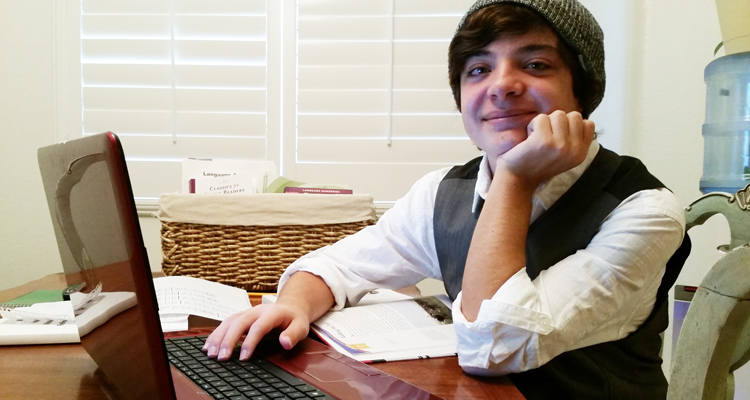When the Schoolyard Resembles a Prison Yard
Jacob K. had the considerable misfortune to share his third grade class with four notorious bullies. The boys had been kicked out of several previous schools due to incorrigible schoolyard bullying and now they made this San Bernardino, California, elementary school their home. For Jacob, their presence turned every day’s recess into a test of endurance as these boys would taunt, threaten, punch, kick, and shove him relentlessly.
“His playground was like a prison yard,” recalls Kathy, Jacob’s mom. “It was a dangerous place.” Jacob would frequently come home with scrapes and bruises and once suffered a broken arm when one of the kids pushed him off the jungle gym. Making weekly visits to the school, Kathy continued to report the problem to the principal and Jacob’s teacher, but the bullying only intensified. “Once they even started choking him to near unconsciousness,” Kathy exclaims. But school officials seemed powerless to stop the bullying. “I don’t know what to do,” Jacob’s teacher told Kathy, “I send the boys to the office and they just come right back again.”
One day, Kathy received a call from Jacob’s school reporting that Jacob had fought back by hitting one of the boys. Though she felt relieved that he had defended himself, it concerned her that he was forced to resort to violence. Fighting back didn’t make a difference, however, and the bullying continued. Jacob was not aggressive by nature. He loved the arts. From the time he was six years old, Jacob enjoyed dancing, acting, and musical theater. He had taken ballet, tap, and swing dancing lessons, in addition to a variety of music classes. His artistic temperament made him a continual target for the bullies, but he remained true to his own identity. “He never let the bullies take away what he enjoys most in life,” says Kathy. As is common with victims of bullying, however, Jacob’s grades suffered, he became fearful and lacked self-confidence.
Finding a Solution
Towards the end of the school year, Jacob’s teacher suggested that Kathy look into online learning as an alternative school environment. Kathy did the research and enrolled him at California Virtual Academies (CAVA) the following year. Jacob, now in the eighth grade, is beginning his fifth year at CAVA and Kathy says he loves it. “We’re so much happier now,” she says.
The transition to an online learning environment went well for Jacob and Kathy noticed that freedom from bullying was just one of the many benefits he experienced. Jacob’s grades improved and he seemed to be learning more. Kathy discovered that in his previous school, students who had not finished a project during class were never given the opportunity to complete it. They simply moved on to the next project. So Jacob had become accustomed to not seeing projects through due to the restricted class time. As an online student, Jacob could now take the time he needed to complete each assignment. His school days are now more focused, without the constant disruptions he had at his previous school as teachers attempted to discipline the unruly kids. “Someone was always misbehaving there,” says Kathy. And Jacob has become an independent learner—he enjoys progressing through each lesson. “He’s so much smarter now,” Kathy notes.
Kathy’s main concern about switching Jacob to a virtual school was whether he would have enough interaction with other kids. Her concerns diminished as Jacob continued to take acting and dance lessons and became the DJ for CAVA’s dance parties, with his own DJ name—DJ J. Dog. “He’s a social butterfly now,” says Kathy. He even started a drama club at community day last year, where he and three other students teach acting and musical theater. “He started the club to give children the opportunity to gain the skills needed to perform and to gain self-confidence,” Kathy says. Approximately 25 other students joined the club, which will continue this school year as well. And with CAVA’s “no tolerance for bullying” policy, Jacob is free to be himself without fear of being hurt or harassed.
Unfortunately, the bullying problems have continued for the other students at the schools in Jacob’s neighborhood. Three local parents have asked her about switching their kids to an online learning environment. As bullying continues to be a problem—according to the U.S. Department of Health and Human Services one in three students say they’ve been bullied at school—it is not surprising that many turn to online schools. K12 CEO and Chairman of the Board Nate Davis reports that, “nearly one quarter of all of our families say they came to a K12-powered school because their child was bullied and an online school offered a bully-free environment.”
Though his confidence has improved immensely in these last four years since joining a virtual school, Kathy still sees the impact that bullying had on Jacob, as he is still somewhat anxious around new kids. This reinforces her belief that bullying should not be allowed to continue. “It’s important for parents to get involved in their children’s lives,” she says.


























































